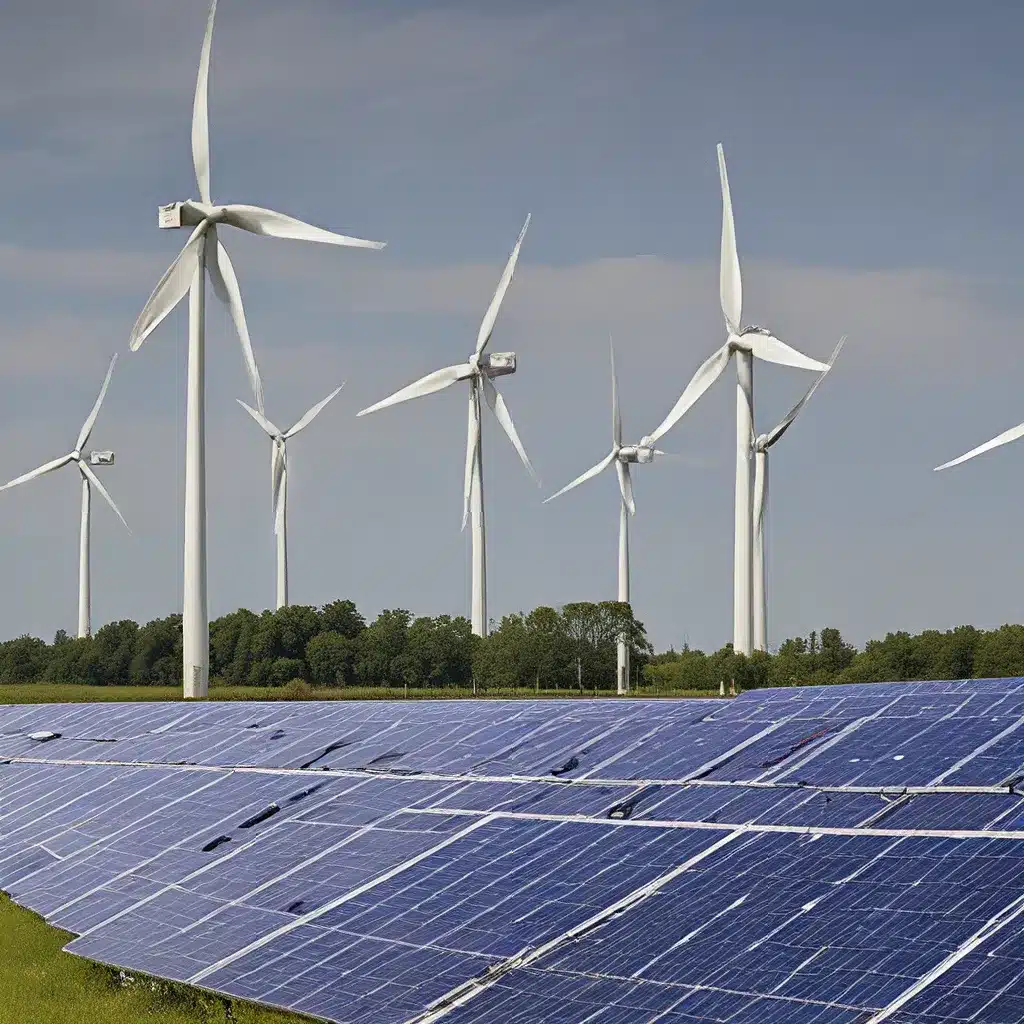
Unraveling the Complexities of Renewable Energy Mandates
As the world grapples with the urgent need to combat climate change, the role of renewable energy has become increasingly pivotal. Renewable energy mandates, policies that require a certain percentage of a state or utility’s energy to come from renewable sources, have emerged as a key strategy to drive the transition towards a sustainable energy future. However, the effectiveness and implementation of these mandates can vary widely, and it’s crucial to understand the nuances and best practices to maximize their impact.
Let me take you on a journey as I delve into the intricacies of renewable energy mandates, exploring their successes, challenges, and the lessons we can learn to shape a more resilient and eco-friendly energy landscape.
Evaluating the Effectiveness of Renewable Energy Mandates
Renewable energy mandates have been implemented across the globe, with varying degrees of success. To assess their effectiveness, we need to consider a multitude of factors, including the specific policy design, the availability of renewable resources, the level of investment and incentives, and the overall socio-economic and political climate.
One of the key metrics in evaluating the success of these mandates is the actual increase in renewable energy generation. Studies have shown that well-designed and effectively implemented mandates can lead to a significant surge in renewable energy deployment, often outpacing the targets set by policymakers. This not only contributes to reducing greenhouse gas emissions but also fosters the growth of a robust renewable energy industry, creating jobs and economic opportunities.
However, the path to success is not always straightforward. Evaluations have revealed that some renewable energy mandates have fallen short of their goals, hampered by factors like insufficient funding, lack of political will, or regulatory barriers. In these cases, a deeper understanding of the underlying challenges is crucial to identify areas for improvement and refine the policy framework.
Identifying Best Practices for Renewable Energy Mandates
As we navigate the complexities of renewable energy mandates, it’s essential to distill the lessons learned and identify the best practices that can guide policymakers and practitioners alike. Drawing insights from research and real-world case studies, here are some key elements that contribute to the success of renewable energy mandates:
-
Comprehensive Policy Design: Effective mandates are characterized by clear and ambitious targets, robust enforcement mechanisms, and a balanced mix of incentives and penalties to drive compliance. Policymakers should also consider complementary policies, such as grid modernization and energy storage initiatives, to create a supportive ecosystem for renewable energy growth.
-
Stakeholder Engagement: Meaningful collaboration with utilities, renewable energy developers, environmental advocates, and local communities can help overcome implementation challenges and ensure that the policy aligns with the needs and concerns of all stakeholders.
-
Flexible Compliance Pathways: Providing a range of compliance options, such as renewable energy credits (RECs) and alternative compliance payments, can enhance the flexibility and cost-effectiveness of the mandate, making it more palatable for regulated entities.
-
Continuous Evaluation and Adaptation: Regularly monitoring the mandate’s performance, evaluating its impacts, and adjusting the policy based on evolving market conditions and technological advancements can help maintain its relevance and effectiveness over time.
-
Robust Financing and Incentives: Coupling renewable energy mandates with a suite of financial incentives, such as tax credits, rebates, and low-interest loans, can catalyze private investment and make renewable energy more accessible to consumers and businesses.
-
Capacity Building and Public Awareness: Investing in workforce training, public education, and community engagement can cultivate a well-informed and supportive ecosystem for renewable energy adoption, ultimately enhancing the mandate’s long-term success.
Navigating the Challenges and Opportunities
While renewable energy mandates hold immense promise, they also face a range of challenges that require careful navigation. One of the key hurdles is the variability of renewable energy resources, which can lead to supply-demand imbalances and grid reliability concerns. Policymakers must work closely with utilities and grid operators to develop robust infrastructure and integration strategies to address these issues.
Another challenge lies in ensuring equitable access to the benefits of renewable energy, particularly for underserved communities. Mandates should be designed with a keen eye towards social and economic justice, ensuring that the transition to clean energy does not exacerbate existing disparities.
Despite these challenges, the opportunities presented by renewable energy mandates are vast and exciting. As technology continues to advance and costs decline, the potential for renewable energy to become the dominant source of electricity generation is within our reach. By harnessing the power of policy, we can accelerate this transition, creating a cleaner, more sustainable, and more resilient energy future for all.
Embracing the Future of Renewable Energy
As I reflect on the journey we’ve taken through the complexities of renewable energy mandates, I’m left with a sense of cautious optimism. While the path forward may not be without its obstacles, the transformative potential of these policies is undeniable. By learning from the successes and failures of the past, and by embracing a collaborative, adaptable, and equitable approach, we can unlock the true power of renewable energy mandates to drive the clean energy revolution.
So, let us continue to explore, experiment, and evolve – guided by the principles of best practices, empowered by the resolve to create a more sustainable world, and inspired by the promise of a future where renewable energy is not just a mandate, but a way of life.

